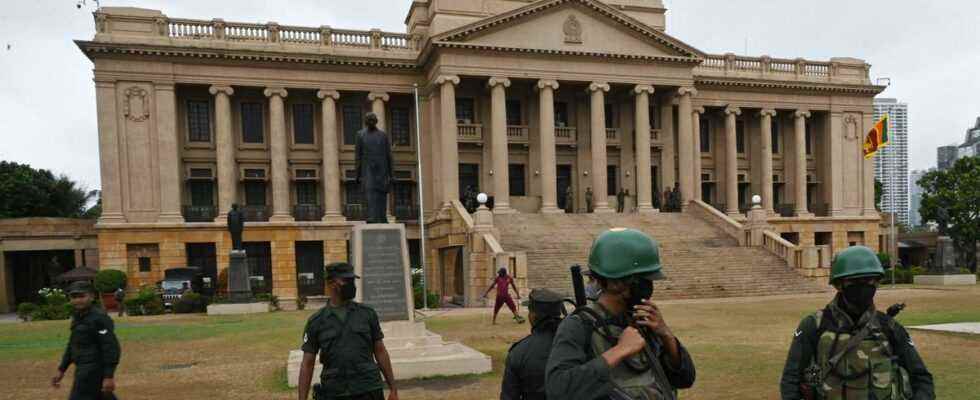Sri Lanka’s presidential palace will reopen on Monday, police said, days after the brutal dismantling of an encampment of anti-government protesters by military and law enforcement agencies sparked public concern. International community.
The Presidential Palaceis ready to reopen on MondayA police official told AFP on Sunday, on condition of anonymity because he was not authorized to speak to the media. Experts went to the scene to collect evidence of the damage caused by the protesters, he added.
SEE ALSO – ‘We are here to save the country’: Protesters invade Prime Minister’s offices in Sri Lanka
Read alsoInside the anger that took power away in Sri Lanka
Hundreds of soldiers and police armed with automatic assault rifles and batons brutally dismantled a camp of anti-government protesters at dawn on Friday on the orders of President Ranil Wickremesinghe, who had just been sworn in. At least 48 people were injured and nine arrested.
Western governments, the United Nations and human rights groups have condemned Ranil Wickremesinghe for using violence against unarmed protesters who announced their intention to leave the site later in the day on Friday.
A country ravaged by crises
The building had been partially overrun by thousands of protesters nearly two weeks ago, hastening the downfall of President Gotabaya Rajapaksa. The leader, rescued in his neighboring residence by the army, fled to Singapore from where he sent in his resignation.
Police spokesman Nihal Talduwa said on Sunday protesters were free to continue their demonstrations at a designated site near the presidential office. The military operation to dismantle the protesters’ encampment took place less than 24 hours after the inauguration of Ranil Wickremesinghe and just before the appointment of a new cabinet.
Read alsoSri Lanka: the origins of the crisis, a failed transition to organic and a flagging economy
Elected for the remaining term of Gotabaya Rajapaksa’s term, which ends in November 2024, Ranil Wickremesinghe inherits a country ravaged by an economic crisis, short of foreign currency, marked by long blackouts, food shortages, electricity, fuel and medicine for months.
His bankrupt government defaulted on its $51 billion foreign debt, and is currently in bailout talks with the International Monetary Fund. The crisis shows no signs of easing, but the government announced on Sunday that it would reopen schools, which were closed for most of the month.
The education ministry said pupils and teachers will only be asked to return to school three days a week as transport is still hampered by a national fuel shortage. Mile-long queues for refueling were seen across the country on Sunday, despite the introduction of a rationing system.
SEE ALSO – Sri Lanka: “I have always done my best for my native land”, assures the ex-president
